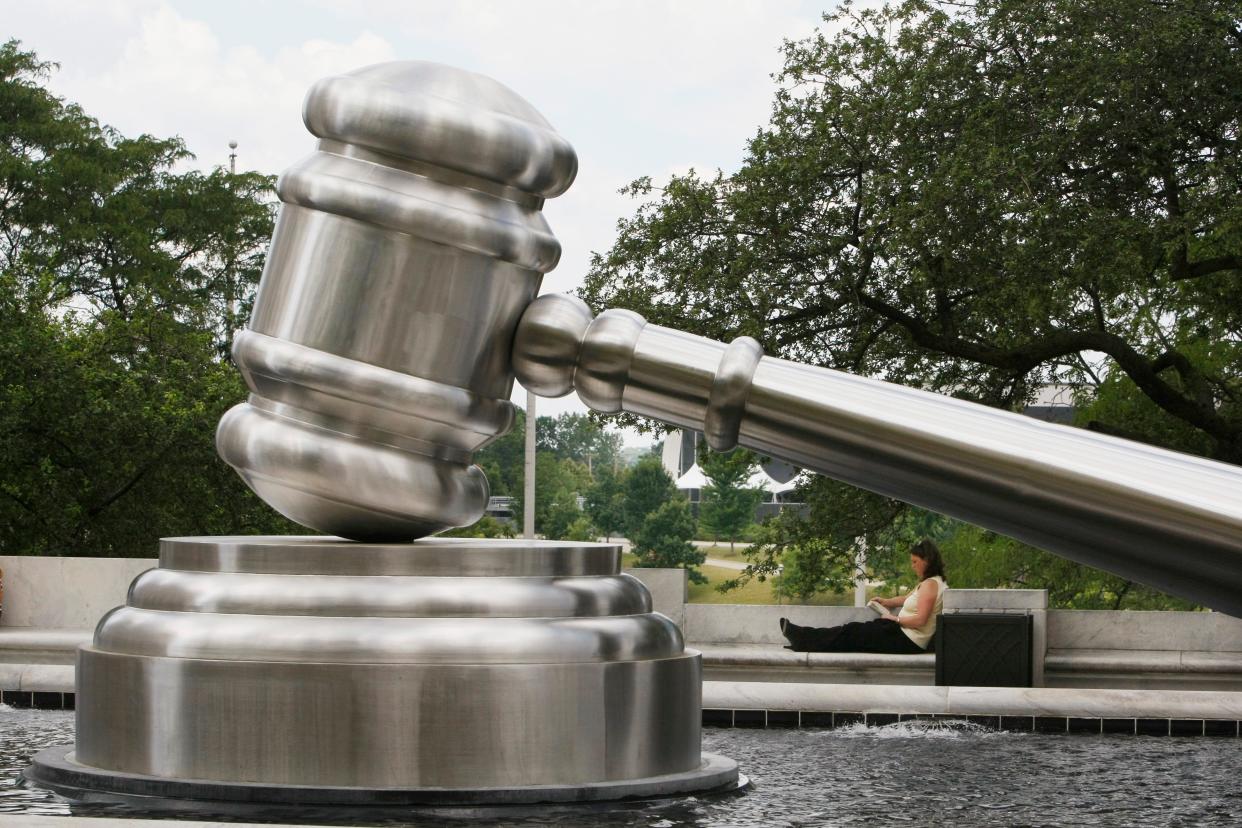Ohio Supreme Court reverses course, upholds 65-year prison sentence in theft case

Susan Gwynne admitted that she stole thousands of items from dozens of residents at nursing homes and assisted living facilities in Delaware and Franklin counties where she worked. But she didn't think she should get 65 years in prison.
The Ohio Supreme Court on Wednesday in a split decision upheld the 65-year sentence −a new ruling that unravels a previous decision by the high court.
The case raises the questions: What is appropriate punishment for a first-time, non-violent felony offender, when consecutive sentences are merited and what oversight should appeals courts have?
The case also reflects what can happen when the balance of the Ohio Supreme Court shifts.
Writing for the majority, Chief Justice Sharon Kennedy said state law directs appellate courts to generally defer to trial courts' sentencing decisions. She wrote that an appellate court could change a trial court's sentence if it "clearly and convincingly finds" the record doesn't support the trial court's findings.
The new opinion authored by Kennedy disagreed with the opinion issued in December 2022.
In December 2022, the Ohio Supreme Court said in a 4-3 ruling that trial courts need to consider an overall combined prison term when imposing consecutive sentences. The court also found the Fifth District Court of Appeals erred in deciding it had no authority to review and vacate Gwynne’s 65-year sentence. The high court sent it back to the appeals court to reconsider the length of Gwynne's sentence.
Once the control of the court shifted in January, the justices voted 4-3 to reconsider the December 2022 ruling.
Justice Melody Stewart wrote in her dissenting opinion that the court only decided to reconsider the case when Republican Joe Deters joined the court. Gov. Mike DeWine appointed Deters to fill a vacancy created when Kennedy moved up to be chief justice.
She said that Kennedy's majority opinion will leave Ohio's law on consecutive sentencing − stacking prison time on multiple counts to run one after the other rather than concurrently − "so muddled that it will be virtually impossible for any defendant" to mount a successful challenge of a stacked sentence.
Trial court judges issue consecutive sentences in cases if they deem it necessary to protect the public and it'd be proportionate to the offenses. Generally, though concurrent sentences are the default.
In a second dissent, Justice Jennifer Brunner noted other cases similar to Gwynne's crimes in which the defendants received far less prison time. She said people who get 65 years in prison are almost always convicted of rape, kidnapping, torture or other heinous violent behavior.
Ohio Supreme Court Justice Michael Donnelly, who has been vocally critical of the Gwynne case and recused himself, said "This sentence is exhibit A in how the state of Ohio needs a total overhaul of its criminal sentencing scheme and we need a database."
The current system allows for disparity − grossly excessive and unexplainedly lenient sentencing, he said. Outcomes are tied to which judge hears a case and not on the rule of law, Donnelly said. That undermines the public confidence in the judicial system, he said.
Donnelly supports establishing a statewide criminal sentencing database, which would allow researchers, judges and the public to compare outcomes of similarly situated defendants.
Gwynne, now 62, is incarcerated at the Ohio Reformatory for Women in Marysville. Her release date is May 30, 2081 when she'd be 120-years-old.
Laura Bischoff is a reporter for the USA TODAY Network Ohio Bureau, which serves the Columbus Dispatch, Cincinnati Enquirer, Akron Beacon Journal and 18 other affiliated news organizations across Ohio.
This article originally appeared on The Columbus Dispatch: Ohio Supreme Court upholds 65-year sentence in property theft case
